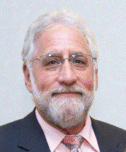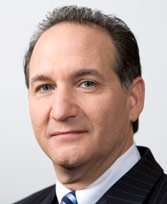by Wendy Schiller, National Council of Juvenile and Family Court Judges
What would you do?
“Fifteen-year-old Luis is in your juvenile court for final disposition after pleading guilty to possession of marijuana and petty theft (committed to support his drug habit). His case manager wants Luis to get treatment, and it’s clear that the family needs support and guidance. You also want to make sure Luis connects to a support system that will help him stay clean. So, in addition to the standard recommended outpatient treatment, you consider mandating him to attend three sober support group meetings a week. But Luis’ case manager tells you that your community has no youth specific AA or NA meetings. You decide to go ahead with the mandate anyway. After all, something is better than nothing, right?” (Excerpt taken from Using “Sober Support” Groups in Your Juvenile Court, March 2010, National Council of Juvenile and Family Court Judges)
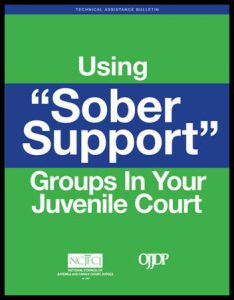
- Would you mandate Luis to attend AA or NA meetings that were not youth-specific?
- How many days per week would you mandate Luis to attend these groups?
- Is something actually better than nothing?
These are the questions that every case manager or presiding judge might ask before mandating any additional components to a youth’s probation. Focus on the last question – is something actually better than nothing? That questions isn’t always easy to answer. There is a connection between that question and the theory of unintended consequences.
We have all heard of the law of unintended consequences…an adage or idiom that warns that an intervention in a complex system [AKA – adolescents] invariably creates unanticipated and often undesirable outcomes. It is a basic principle of economics, and governments struggle with unintended consequences to the policies that are set in place on a daily basis. The adolescents we are working with are complex systems and sometimes when we mandate treatment modalities or activities for the youth as a component of their probation, there may be side-effects that we have not considered. Mandating sober support groups might have side effects, such as: exposure to an unsafe environment, increased likelihood of further or more severe drug/alcohol use, and overexposure to a group that may not be developmentally appropriate for youth.
This article will provide an overview of the technical assistance (TA) bulletin “Using Sober Support Groups in Your Juvenile Court” published by the National Council of Juvenile and Family Court Judges.
Because juvenile courts and juvenile drug courts are utilizing sober support groups as a component of probation, it is important that court professionals have all the information needed to make the best possible decisions as they mandate youth to receive help from these groups, to limit any unintended consequences that may occur in conjunction with the mandate.
Studies and research have shown that about half of the youth involved in the juvenile justice system have substance use issues (Chan, Y.F., Dennis, M. L., Ives, M. L., & Modisette, K. C., Characteristics of Juvenile Treatment Drug Court Clients, Drug Court Review Volume VII, Issue 1 (2010) 10-57). These issues must be addressed and court professionals often begin by using AA or NA because these options are frequent, accessible, and free.
Even though it is common to mandate youth to attend sober support groups, like AA or NA, court professionals may want to consider several questions surrounding the use of sober support groups before youth attend local groups:
- Are sober support groups developmentally appropriate for adolescents?
- Is there a perceived lack of fit by the youth?
- Which adolescents are most likely to benefit from attending sober support groups?
- How frequently should adolescents attend?
- Is the court violating the youth’s legal rights by mandating youth to attend a sober support group?
Are sober support groups developmentally appropriate for adolescents?
The research suggests that the juvenile justice system has not found an AA/NA model that is effective or particularly helpful for its clients. Reasons for this may include:
- The youths mandated to attend do not view themselves as heavy addicts
- The addiction severity for youth is not the same as it is for adults
- There isn’t a long history of substance abuse
- Studies have found that the most common reason for leaving AA/NA was due to boredom or perceived lack of fit. This perception may stem from the fact that:
- The presenters and participants are usually much older (the average participant is a 46 year old Caucasian male)
- The youth were not able to relate to the issues discussed during the meeting (i.e., divorce, financial issues, etc.) (Using Sober Support Groups in Your Juvenile Court, March 2010. Page 5)
Which adolescents are most likely to benefit?
This is a complicated question, given that many youth that are referred or required to attend sober support groups or 12-step programs do not often meet the diagnostic criteria for a substance use disorder. In a study that followed 160 adolescent inpatient participants over an eight-year period, the researchers found that youth with longer periods of substance use, and greater addiction severity were more likely to utilize AA/NA and to gain more from the process. These youth had reached the point of believing that they could not ever use substances again, and that AA/NA was a needed support (Page 6).
How frequently should adolescents attend?
It is not uncommon to hear of juvenile drug court teams ordering “90 meetings in 90 days.” This is a treatment recommendation that many adult drug courts utilize, with juvenile drug courts following suit. Youth may have displayed increases in sobriety with just two to three sessions a week (36 meetings in 90 days). Courts are cautioned to not over-expose youth to sober support requirements. Many youth that move through the juvenile court system, do not display severe addiction.
Some researchers argue that for “…youth with less severe problems, the court might consider approaches that are not based on a 12-step philosophy—such as family therapy, extrication from peer groups, etc” (Page 7).
Is the court violating the youth’s legal rights by mandating a youth to attend a sober support group?
In a series of cases dating back to 1994, federal and state courts have repeatedly ruled that probationers, parolees and inmates may not be coerced into attending Alcoholics or Narcotics Anonymous (AA/NA) or other religious based treatment programs. This prohibition limits juvenile courts as well. Participation in self-help programs may be mandated however, providing the participant has a meaningful choice between religious and secular programs. Programs based upon the Alcoholics Anonymous Twelve Steps, especially those making reference to a Higher Power, should be considered religion-based (Page 7 & 10).
If direct service providers address these questions, courts can greatly improve outcomes for youth with substance abuse issues and who are involved in the juvenile justices system.
The Technical Assistance Bulletin “Using Sober Support Groups in Your Juvenile Court” is a tool that court professionals should use as they address the issue of substance use/abuse with system involved youth, which may help alleviate any unintended consequences that may occur. The complete bulletin clearly defines “Things to Consider” (page 8), “Sober Support Options” (page 10), and an “Overview of the Case Law” (page 12).
To download a complete copy of the bulletin or to look up footnotes and references visit: http://www.ncjfcj.org/images/stories/dept/jfl/sobersupport.pdf.

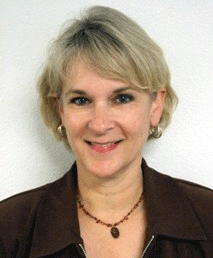

 Following a four-month nationwide search, NCJFCJ President Judge R. Michael Key, with the advice and consent of the NCJFCJ Board of Trustees, selected Ms. Bickett, who assumed her duties April 1, 2011. In making the announcement Judge Key said, “We had some very highly qualified candidates and we chose Mari Kay from among them for a reason. She has a stellar 23-year record in judicial education at the state and national level. Our goal from the beginning was to select someone that we would be excited to present to our membership and our partner agencies, and we have accomplished that goal.”
Following a four-month nationwide search, NCJFCJ President Judge R. Michael Key, with the advice and consent of the NCJFCJ Board of Trustees, selected Ms. Bickett, who assumed her duties April 1, 2011. In making the announcement Judge Key said, “We had some very highly qualified candidates and we chose Mari Kay from among them for a reason. She has a stellar 23-year record in judicial education at the state and national level. Our goal from the beginning was to select someone that we would be excited to present to our membership and our partner agencies, and we have accomplished that goal.”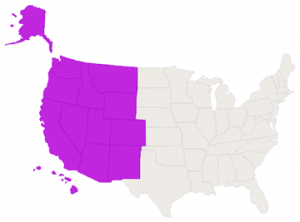
 Please join us in welcoming the following new NASJE members:
Please join us in welcoming the following new NASJE members: Some NASJE members have had significant experience in the international judicial community by practicing their profession of judicial and court personnel education in developing nations. Many others are interested in learning more about opportunities that exist to contribute their skills to judicial systems around the globe. The reasons for NASJE members to have interest in these opportunities might be as diverse as the individuals who belong to our organization. However, NASJE member and former president, Tom Langhorne, summarized it well when he said, “The most life changing rewards I have ever experienced have come through international work. It causes you to critically examine and challenge some of your long held values.” NASJE member and former president William Brunson agreed with Tom and contends that there is very little downside to international work. As he put it, “Consulting in developing nations is an enriching life experience.”
Some NASJE members have had significant experience in the international judicial community by practicing their profession of judicial and court personnel education in developing nations. Many others are interested in learning more about opportunities that exist to contribute their skills to judicial systems around the globe. The reasons for NASJE members to have interest in these opportunities might be as diverse as the individuals who belong to our organization. However, NASJE member and former president, Tom Langhorne, summarized it well when he said, “The most life changing rewards I have ever experienced have come through international work. It causes you to critically examine and challenge some of your long held values.” NASJE member and former president William Brunson agreed with Tom and contends that there is very little downside to international work. As he put it, “Consulting in developing nations is an enriching life experience.”